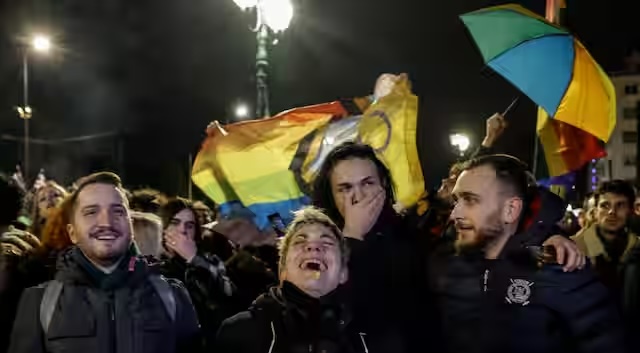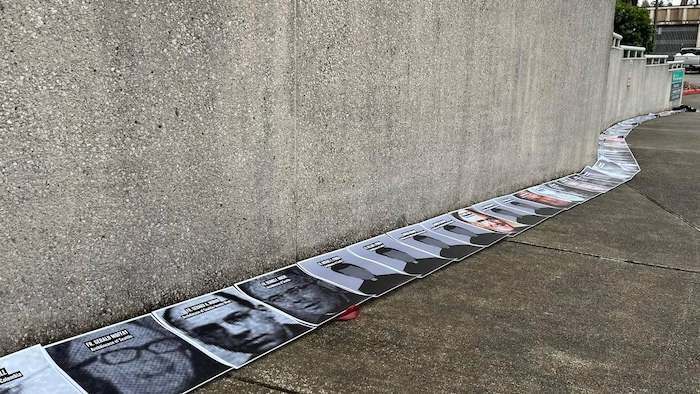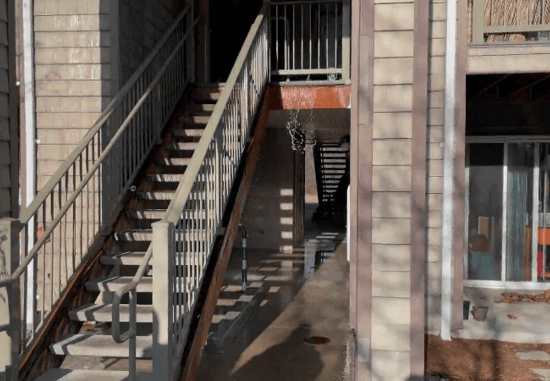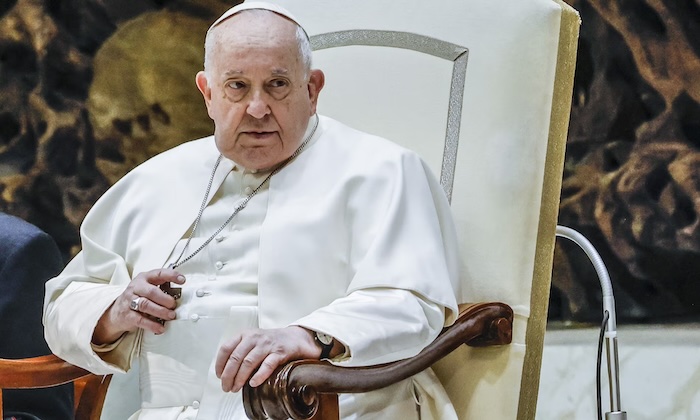— ‘I was told being gay would send you to hell’
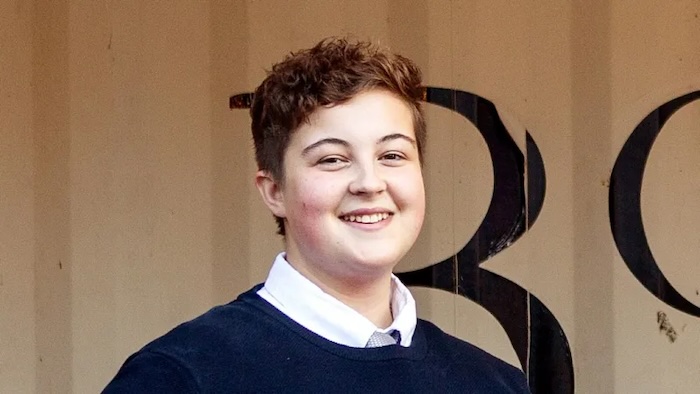
By Natalie Grice
Betty Harper is so “sick and tired” of trying to find a church where she feels truly welcomed as a gay woman that she is planning to start her own.
She explains: “When I was younger I felt different to my friends. I wasn’t attracted to the boys [but] I was attracted to the girls.
“My dad was a pastor of a church at this time and all I’ve known my entire life is ‘being gay is wrong, and being gay will send you to hell’.”
‘It didn’t go down very well’
Betty remembers first mentioning her ideas about her sexuality when she was in Year 8 and entering her teenage years.
“I told my dad, I think I like this girl at school, and it didn’t go down very well, and that’s when I kind of shut off conversations any further about that,” she said.
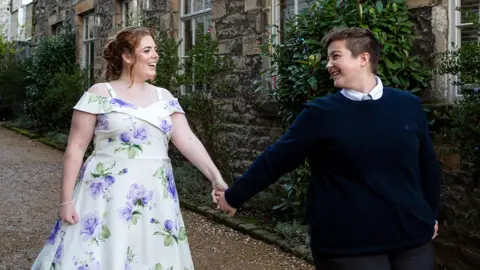
“As a Christian, when you’ve been brought up to be taught it’s not OK to be gay or to be in a same-sex relationship, but you are. You can’t change how you feel.”
She even tried to use her faith to alter who she really was because of her conditioning.
“Believe me, I’ve prayed and prayed and prayed to try and change how I see boys and how I see girls,” she says.
“[But] I was made this way. God made me who I am.”
Betty’s life is intimately bound up with her religion. She works as centre manager for a Christian charity offering community support and aid to the people of Rhyl, Denbighshire, taking over from her mother who helped establish the charity out of a church during the Covid-19 pandemic.
Her personal faith and relationship with Christianity is strong – it is clear to see it permeates every aspect of her life, and this remains the case despite some of the experiences she has had with churchgoers who disapprove of homosexuality, and have made that plain to her.
However, when she initially embarked on a relationship with a woman, she went through a crisis of belief.
‘Disowned’
She and her current partner are now “unravelling” elements of past conditioning after “all those years of being drilled, ‘you’re going to hell, you’re going to hell'”.
It has led to a breach with her father’s side of the family. “We no longer speak. They’ve kind of disowned me because I’m with a woman,” she says.
She has been told by one family member they pray they can go to hell in her place so she can go to heaven.
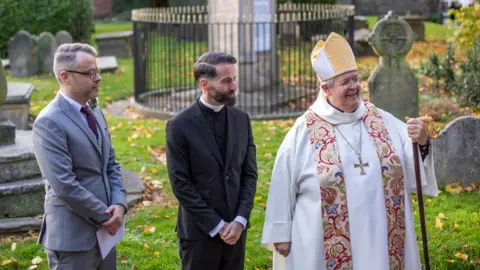
“That is so hard-hitting for me, because I believe there is a heaven and a hell. That’s really hard for me to hear and it made me doubt myself, and it’s that conditioning that needs to be unravelled,” she says.
Perhaps ironically, it was through a church that she and her partner Hannah first met, after Betty and her mother visited an old place of worship that her future partner attended.
Although Hannah had not come out at the time she became a Christian, she still experienced anti-gay sentiments through Sunday services.
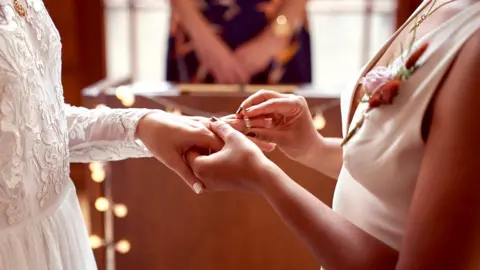
“She was preached at and told it was not OK to be gay just in a general Sunday service. She was like, ‘hang on that’s ridiculous, why can’t you be accepted for being gay?’,” she said.
Betty acknowledges steps have been taken in some Christian churches to welcome and accept LGBTQ+ members, but so far has not found somewhere she feels accepted.
“We’ve been to many, many churches around the area and a lot of them say ‘you’re welcome’. But if you’re married it’s a bit of a taboo subject,” she says.
At one church, initially welcoming to the couple, Betty says she was told after consultations with members of the congregation that she could attend choir rehearsals.
But she was also told not sing or perform on stage because “we wouldn’t want you to influence the younger people, and you couldn’t be a role model for them”.
After conditions were also put on her partner working with the Sunday school, Betty says she “walked away”.
“I said ‘we’ve been together two-and-a-half years and we need to find a church that is completely accepting, and I don’t think we’re going to find that. So I’m going to start something’,” she added.
“And that’s kind of how that snowballed.”
She says the “spur of the moment” decision is something she has run with “because it is so needed”.
‘Everyone is accepted for who they are’
She is now trying to find a wider group of people who are interested, locate a building and a “wholly accepting” pastor for the church, and has already had positive responses to the idea online.
“It’s not specifically for only LGBT people. Straight people are welcome. Everybody is welcome, even if you’re not a Christian,” she said.
Betty is looking for “anywhere in Wales” where there is a good building in a welcoming community, suggesting somewhere “youthful” and “modernised” such as Llandudno.
“I think of a church I would like it to look like – [such as] the churches that have very upbeat music. I suppose it would be mainly directed at younger-ish people, unless some of the older people love the music; they’d be more than welcome,” she grins.
She envisages a place where people can “do what they want” in worship.
“It shouldn’t be something you’re reading [from a leaflet] constantly. You should dance, express yourself how you best express yourself. That’s the kind of church I’d like to start.”

Betty and Hannah are hoping to marry in 2025, and if things go to plan hope they will be able to have a blessing in their own church after a civil service.
Currently, same-sex couples are unable to marry in Roman Catholic churches, the Anglican Church of England or the Church in Wales, although the Church of Scotland has voted in favour of the move.
Other denominations, such as the Methodist Church, United Reformed Church, Quakers and the Scottish Episcopal Church perform marriage ceremonies for same-sex couples.
After years of hearing her sexuality was sinful, Betty just wants to be in a place where she and other gay people are accepted.
As she says: “All you’re doing is loving somebody. It’s not like you’re murdering or anything like that.
“You’re just loving somebody, and God is love, so how can he discriminate [against] you for loving someone?”
Complete Article ↪HERE↩!

